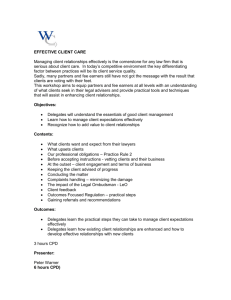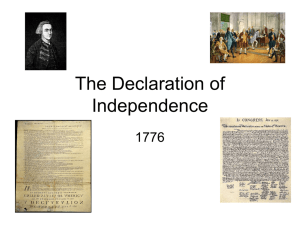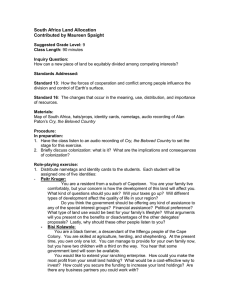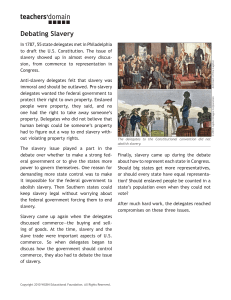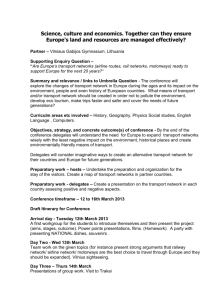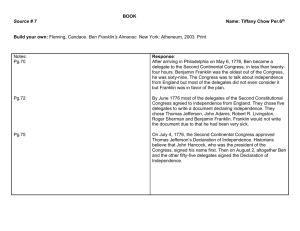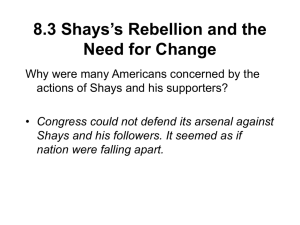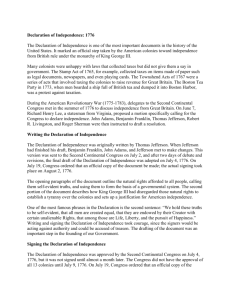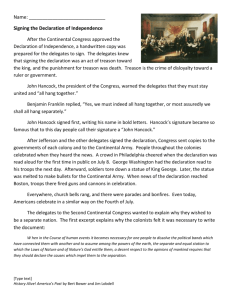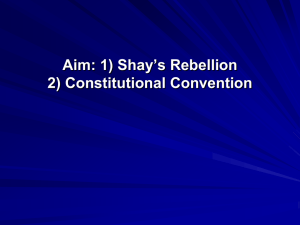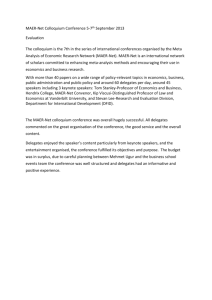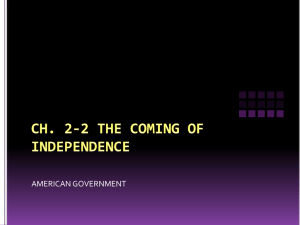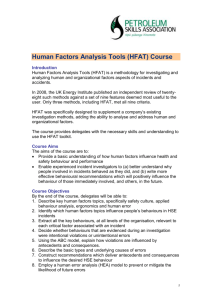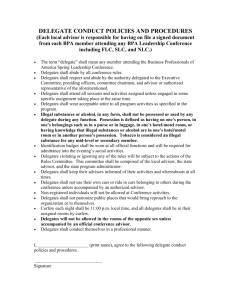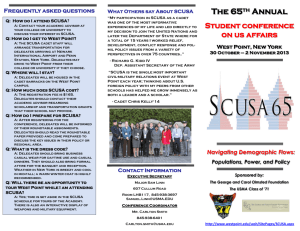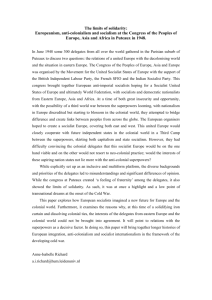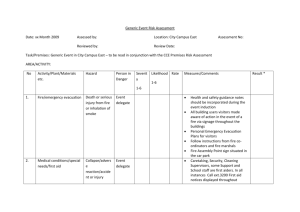On July 1, 1776, the Second Continental Congress met in
advertisement
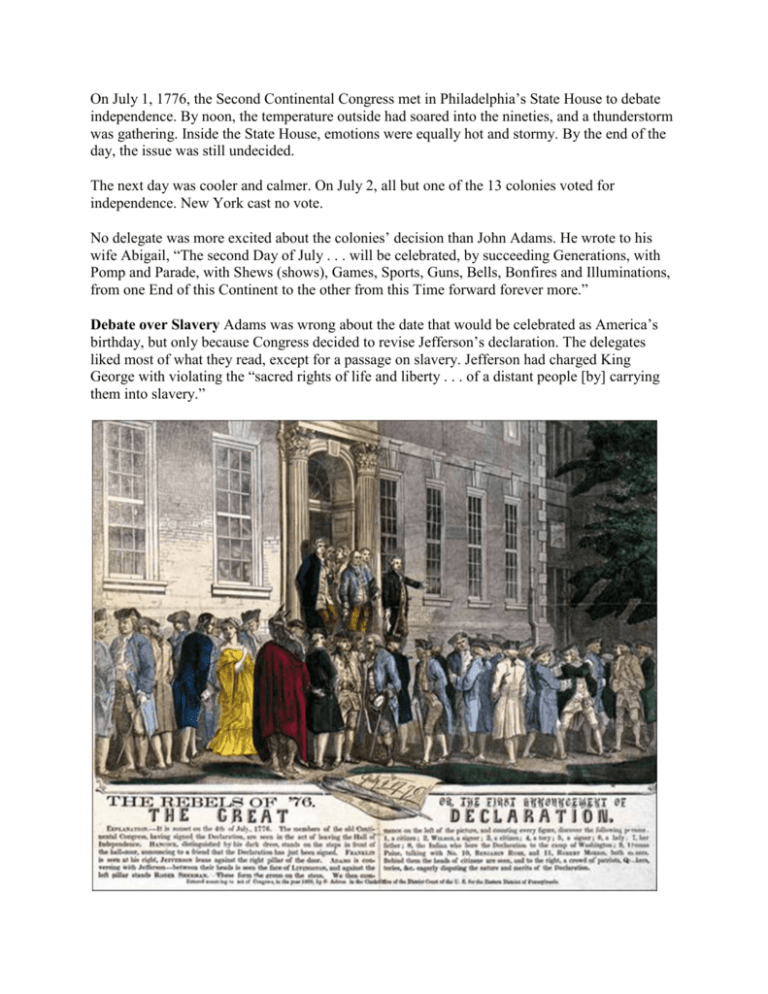
On July 1, 1776, the Second Continental Congress met in Philadelphia’s State House to debate independence. By noon, the temperature outside had soared into the nineties, and a thunderstorm was gathering. Inside the State House, emotions were equally hot and stormy. By the end of the day, the issue was still undecided. The next day was cooler and calmer. On July 2, all but one of the 13 colonies voted for independence. New York cast no vote. No delegate was more excited about the colonies’ decision than John Adams. He wrote to his wife Abigail, “The second Day of July . . . will be celebrated, by succeeding Generations, with Pomp and Parade, with Shews (shows), Games, Sports, Guns, Bells, Bonfires and Illuminations, from one End of this Continent to the other from this Time forward forever more.” Debate over Slavery Adams was wrong about the date that would be celebrated as America’s birthday, but only because Congress decided to revise Jefferson’s declaration. The delegates liked most of what they read, except for a passage on slavery. Jefferson had charged King George with violating the “sacred rights of life and liberty . . . of a distant people [by] carrying them into slavery.” Library of Congress This poster shows the delegates leaving Independence Hall in Philadelphia to announce the signing of the Declaration of Independence. Almost no one liked this passage. Southerners feared that it might lead to demands to free the slaves. Enslaved Africans provided much of the labor used on southern farms. Northerners worried that New England merchants, who benefited from the slave trade, might be offended. Even delegates who opposed slavery felt it was unfair to blame the king for enslaving Africans. The passage was removed. Independence Day On July 4, the delegates approved a final version of the Declaration of Independence. When they signed the document, they pledged to support independence with “our Lives, our Fortunes, and our sacred Honor.” This was a serious pledge. Every signer understood that he was committing an act of treason against Great Britain. If the new nation failed to win its freedom, each of them could very well end up swinging from a hangman’s rope. Knowing this, Benjamin Franklin told the delegates, “We must all hang together, or assuredly we shall all hang separately.”
